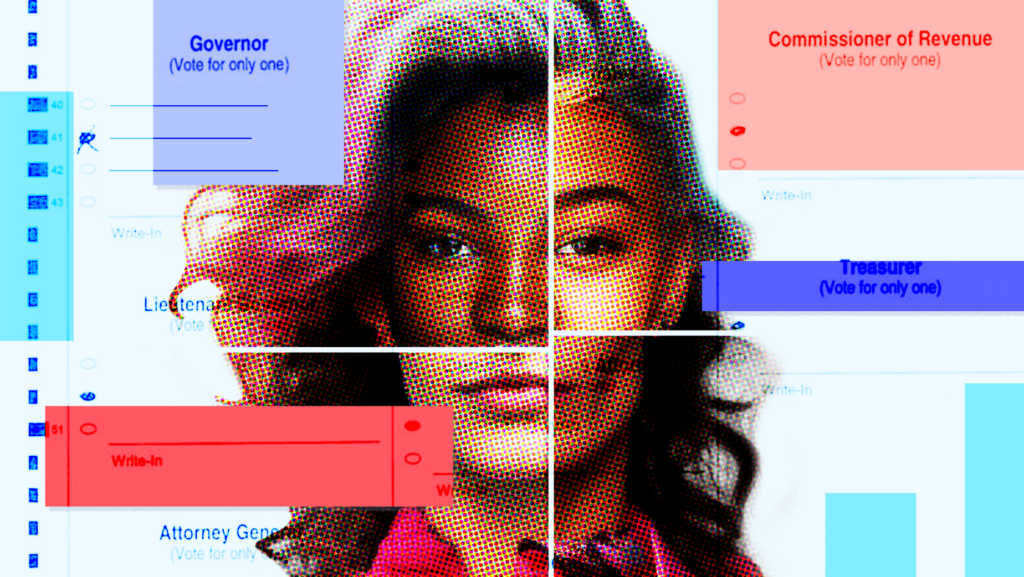Redefining “Politicians” in 2024

Attacks on fair representation in GOP-majority state legislatures like in Alabama, Georgia and Louisiana may be facing a reckoning for their gerrymandered maps that violate the Voting Rights Act. The newly implemented maps in these southern states could result in more equal opportunities for fair representation in their state houses and in Congress going forward.
By encouraging and supporting young and diverse individuals to run for office, which is what we do every day at Run for Something, we can reshape the narrative of our political landscape. In the face of significant challenges and too many lackluster federal candidates, our nation stands at a crossroads, and the solution lies in the hands of new leaders. To truly transform our government, we must continue to elect young and diverse individuals to state and local offices in every state across the country. Together, we can build a government that works for everyone, where the collective power of our differences becomes our greatest strength.
With nearly 70% of races during the November 2022 midterm elections going uncontested, the time is ripe for the emergence of a new wave of motivated, passionate and young leaders. In 2024, 41 million Gen Z members will be eligible to vote; their participation could catalyze a much-needed revolution in our political landscape.
It is abundantly clear that the composition of the U.S. government does not mirror the diversity of the American people. Disparities persist in terms of age, race and LGBTQIA+ representation:
- The median age among Americans is 38 years old, yet the average age in the U.S. Senate is 63.
- Only 20% of people serving in state legislatures are under 45 years old.
- The median age of school board members is 59 years old.
- Thirty of the 50 U.S. governors are 60 years old or older, and the average U.S. mayor of a major city is 58 years old.
- Among state legislators, only 33% are women, 10.5% are Black, 6% are Latino and 4% are Asian/Pacific Islander.
- Nationwide, only 0.2% of elected officials publicly identify as LGBTQIA+.
The absence of diverse representation has allowed predominantly white, male Baby Boomers to perpetuate a system that caters to their interests — from the highest echelons of government to municipal office. This lack of younger and more diverse representation has failed to address pressing issues, such as gun violence, housing costs and climate change. Young and diverse leaders, being closer to these problems, are also closer to the innovative and effective solutions needed for progress.
Recent findings from the Center for Information & Research on Civic Learning and Engagement (CIRCLE) show that at least 20% of young people would consider running for office. These emerging leaders are tired of empty promises and mere lip service on vital issues from those in power. They are ready to step into positions of influence and take on the responsibility of bringing about tangible change. By electing individuals who understand the issues at a personal and community level, we can bridge the gap between the governed and the governing, fostering a more responsive and inclusive government.
The path to a brighter future lies in the hands of those who are ready to step up and lead.
The challenges we face demand fresh perspectives, innovative solutions and leaders who are genuinely representative of the people they serve. Research from IGNITE, an organization dedicated to training young women to run for office, shows that around 70% of Gen Z women-identifying and nonbinary people would be more willing to vote if there were more female candidates, racial minority candidates, younger candidates and candidates who speak to young people’s issues on the ballot.
The need for diverse and representative leadership to create real change and inspire future leaders has never been more pressing than it is now. We’ve seen attempts to limit representation play out in states like Alabama, Georgia and Louisiana, where the GOP-controlled state legislatures gerrymandered district maps and violated the Voting Rights Act. In these states, the courts have stepped in, resulting in more majority-Black districts.
These failed attempts at voter suppression should serve as a reminder and call to action for a political landscape that genuinely reflects the rich diversity of our nation and addresses the multifaceted challenges we face. In the long term, the commitment to nurturing and supporting the next generation of leaders is crucial.
Building a bench of new leaders includes:
- Creating avenues for mentorship,
- Providing resources and
- Dismantling the systemic barriers that hinder young people and historically marginalized communities from entering politics.
The path to a brighter future lies in the hands of those who are ready to step up and lead. It’s a journey that requires courage, resilience, and a deep commitment to the values of equity and justice. Together, we can create a government that truly serves the interests of every American, paving the way for a more just and equitable future.
Sara Hadad is the chief campaigns officer for Run for Something.